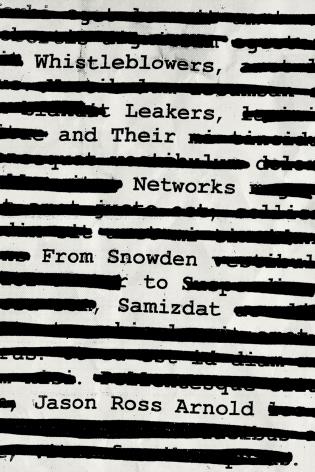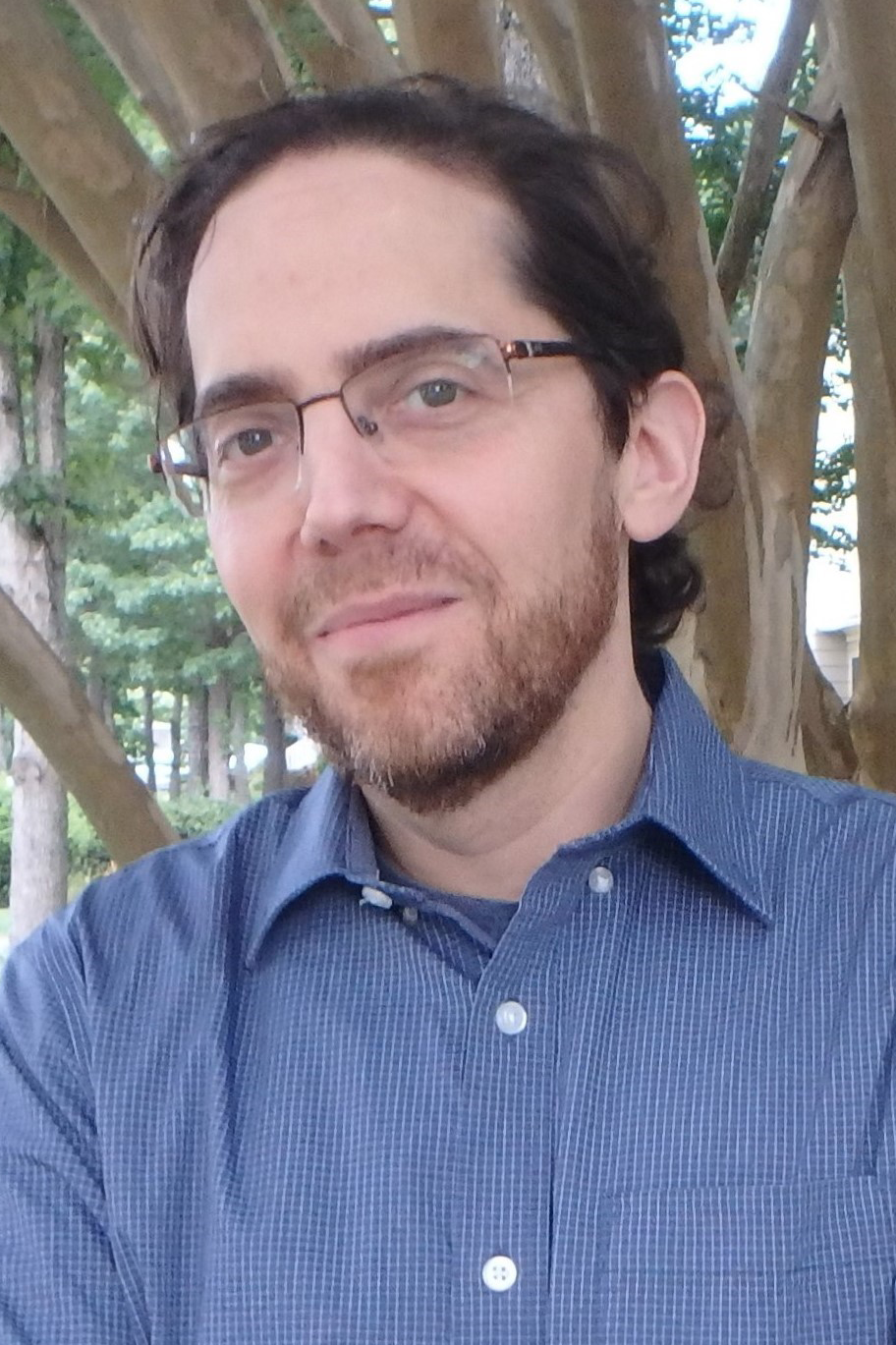
A review of Jason Ross Arnold’s book Whistleblowers, Leakers,
and their Networks
Published in The Whistle (Newsletter of Whistleblowers Australia), No. 106, April 2021, pp. 4-5
Reviewed by Brian Martin
In the Soviet Union under Stalin, defying the regime could be life-threatening. After Stalin died in 1953, there was a “thaw” under Khrushchev, and before long a number of dissident publications began to be written and circulated. They were called samizdat. The editors took great risks — and so did their informants. There were remarkable networks connecting citizens who reported on abuses to the editors. A question: should someone providing information for samizdat editors be called a whistleblower?
In the 1980s, an organisation called witness began providing cameras to people living under repressive regimes, plus training in using the cameras, to enable them to record human rights abuses that witness could publish. With the advent of the Internet and cheap videocameras, witness expanded its activities to include streaming of videos. Images of abuse often have a greater impact than text, so witness was able to have a significant impact. A question: should an individual recording video evidence of human rights violations be called a whistleblower?
On some farms, animals are treated cruelly. Some animal activists have sought to expose this by sneaking into farms, taking photos or videos, and then exposing the cruel treatment to the world. In the US and Australia, animal-reliant businesses have fought back by pushing politicians to pass laws making entry to farms or recording of activities to be a criminal offence. In the US, these are called ag-gag laws. A question: should someone sneaking into farms to obtain evidence of animal cruelty be called a whistleblower?
You can learn a great deal more about each of these issues from a 2019 scholarly book by Jason Ross Arnold titled Whistleblowers, Leakers and their Networks: from Snowden to Samizdat. He has chapter after chapter dealing with “secret-spilling,” with special attention to the networks involved. A person who observes and records an abuse is one node in a network. Also involved are those who pass on the information, verify it, put it into an accessible and understandable form, and publish and promote it — and maintain the networks to enable this process. To leak information is pointless unless there’s someone willing to take notice.

As indicated by the title of his book, Arnold is concerned with whistleblowers and leakers. His approach is rather different from that familiar to members of Whistleblowers Australia, so let me explain. He thinks of whistleblowers as secret-spillers, as people who alert the public to issues that authorities would rather keep hidden. This nicely captures the cases of informants for samizdat, witness and animal rights groups, but is quite different from the usual experience of employee whistleblowers.
Arnold sets up strict requirements for someone to be called a whistleblower. He says they should carefully assess the implications of their revelations, including the possible harms they may cause, especially to the organisation whose actions they are exposing. He says they shouldn’t release any more information than necessary.
A tough evidentiary standard forces would-be whistleblowers to carefully consider whether their disclosures really do support their allegations. It asks them to consider the real possibility that the evidence is faulty or incomplete. Would it persuade a jury to convict or otherwise sanction the accused?
One likely consequence of the more widespread adoption of a strong burden of proof standard is less leaking. If more would-be whistleblowers reflected on the quality of their evidence and the costs of disclosure, fewer of them would probably proceed. (p. 25)
He applies this framework to Snowden and WikiLeaks, finding their actions fall well short of his expectations for being whistleblowing-worthy. In his detailed analysis of these cases, he sounds like a prosecutor on behalf of the US government, accepting all claims made by intelligence officials (do they never lie?) while not mentioning crimes by the US government. Consider, for example, the 2003 invasion of Iraq, considered by many experts to be illegal according to international law. There were whistleblowers about the invasion including Andrew Wilkie in Australia and Katherine Gun in Britain. It’s too bad that Arnold didn’t consider their cases.
In discussing WikiLeaks, Arnold looks only at the leaks by Chelsea Manning — for example the notorious collateral murder video — and finds they were not sufficiently justified. He doesn’t mention WikiLeaks’ publication of information about numerous other episodes from countries across the world, including repressive states. It almost seems that Arnold sees whistleblowing from the perspective of national security, specifically US national security as interpreted by the government. He doesn’t discuss what happens when protecting US national security harms other governments, foreign corporations, and people — think again of the invasion of Iraq.
Arnold puts the burden of responsibility for the consequences of leaks on the leaker. This seems strange considering that most leakers rely on others, namely on networks, which are central to Arnold’s analysis. The leaks by Snowden and Manning obtained worldwide publicity largely due to mass media coverage, which means that journalists and editors bear a considerable portion of the responsibility for the impact of the leaks. However, Arnold gives little attention to their responsibility, focusing on the leakers.
There is another category of leaker: politicians and high-level government officials who give information to journalists for the purpose of personal or political advantage. These are very different from what might be called public-interest leakers, like Manning and Snowden, who have nothing personal to gain from their actions. However, Arnold does not discuss the much more common self-interested leaking by individuals in positions of power. Perhaps they should be told they need first to weigh up the potential harm resulting from their disclosures.
Most employees who speak out in the public interest do so initially to bosses or others inside their organisations. These sorts of whistleblowers hardly feature in Arnold’s book. Furthermore, many of these employees do not think of themselves as whistleblowers: they say they were just doing their job. Many of them might be called inadvertent or unintentional whistleblowers. They reported a problem, experienced reprisals and only then figured out that they are being treated like a whistleblower — badly. They were hardly in a position to carefully weigh up the consequences of their disclosures. They are not secret-spillers except in a narrow sense. Instead, they point to issues or problems that they think deserve attention. They are not exposing secrets to the public but are raising concerns to figures in authority and asking for their concerns to be investigated and addressed.
Arnold considers that agencies such as ombudsmen and auditor-generals are inside the organisation. Some organisations do have internal mechanisms like this, but there are plenty of independent agencies. For Arnold, all such agencies are internal recipients of disclosures while politicians and journalists are external recipients. He would like would-be whistleblowers to use internal channels and think carefully about the risks and benefits of disclosure — risks and benefits for the organisation on which they are blowing the whistle — before going public.
Arnold assumes that the label “whistleblower” is entirely positive.
Individuals considering spilling secrets in the late twentieth century not only had numerous communications and collaborative options, but they also had the opportunity to become whistleblowers — widely respected modern heroes. … While some may have craved fame and respect, many others probably found the identity’s generally positive sheen as a way to validate their well-intentioned impulse to blow the whistle. (p. 190)
This will be news to many who do not want to be so labelled. For years “whistleblower” was at least partially derogatory, in the same general category as the terms dobber, snitch and informer. With his view that “whistleblower” is always a valued role, Arnold continually returns to the question of whether the label should be applied, for example in relation to samizdat or witness. However, for most of those involved in challenging repressive regimes, exposing human rights abuses and revealing the ill-treatment of animals, whether they are called whistleblowers is unlikely to be a major concern. They can just as easily be called dissidents, activists or human rights campaigners.
In practical terms, calling something whistleblowing is most important when legal protections are involved, and there are no legal protections for any of the major cases Arnold discusses, including those of Snowden and Manning. This is to set aside the question of whether whistleblower protection works in practice. Far too often it doesn’t.
Arnold’s book is useful for stimulating thought about the efforts of activist networks that oppose repression, human rights abuses and animal cruelty. But it is unfortunate that this useful material is tied to a peculiar conception of whistleblowing. The book would have better been titled Secret-spilling.

Jason Ross Arnold
Brian Martin's publications on suppression of dissent